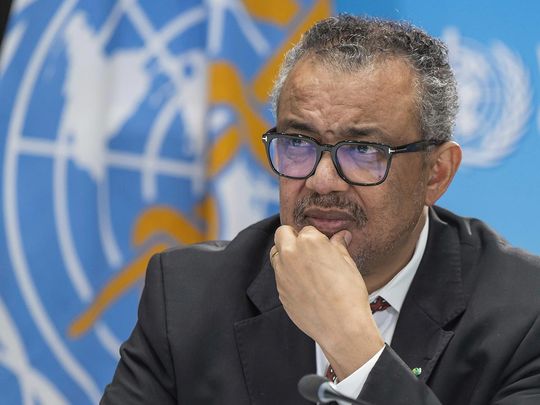World
WHO warns mpox remains global health threat

Geneva: The WHO warned Thursday that mpox remains a global health threat, voicing particular concern at a swelling outbreak of a new deadlier strain of mpox in the Democratic Republic of Congo.
The World Health Organisation said it had received reports of cases from 26 countries in the past month alone.
Mpox, formerly known as monkeypox, “remains a global health threat”, WHO chief Tedros Adhanom Ghebreyesus told a media briefing.
He highlighted that South Africa had recently reported 20 cases, including three deaths – “the first cases in the country since 2022”.
None of those cases had a history of international travel, he said, “suggesting that the confirmed cases are a small proportion of all cases, and that community transmission is ongoing”.
Of particular concern was the situation in the DR Congo, where a new strain of the virus has been spreading since last September.
That outbreak “shows no sign of slowing”, Tedros said, pointing out that 11,000 cases had been reported this year, including 445 deaths, with children most affected.
Rosamund Lewis, the WHO’s technical lead for mpox, said the UN health agency was “very concerned”.
“There is a risk of cross border, of the virus continuing to move, because borders are very porous with neighbouring countries,” she said.
Mpox was first discovered in humans in 1970 in the DRC, with the spread of the Clade I subtype, since mainly limited to certain West and Central African nations, with people mainly catching it from infected animals, such as when eating bushmeat.
Then in May 2022, mpox infections surged worldwide, mostly affecting gay and bisexual men. That was the Clade II subtype.
Since last September though, a new, deadlier Clade I strain has been spreading in the DRC, which is sexually transmitted also among heterosexuals, with the outbreak beginning among sex workers.
Testing revealed it was a mutated variant of Clade I, called Clade Ib.
“The new strain is transmitting so far exclusively from person to person,” Lewis said.
The global mpox outbreak two years ago led the WHO to declare a public health emergency of international concern, the highest alarm it can sound, in July 2022.
It ended the alert in May last year, but continues to advise populations to remain vigilant.
“Mpox is not going away. We live in an interconnected world, so the spread of this virus can continue to happen,” said Maria Van Kerkhove, head of epidemic and pandemic preparedness at the WHO.
“That is something that requires strong surveillance,” she said.










